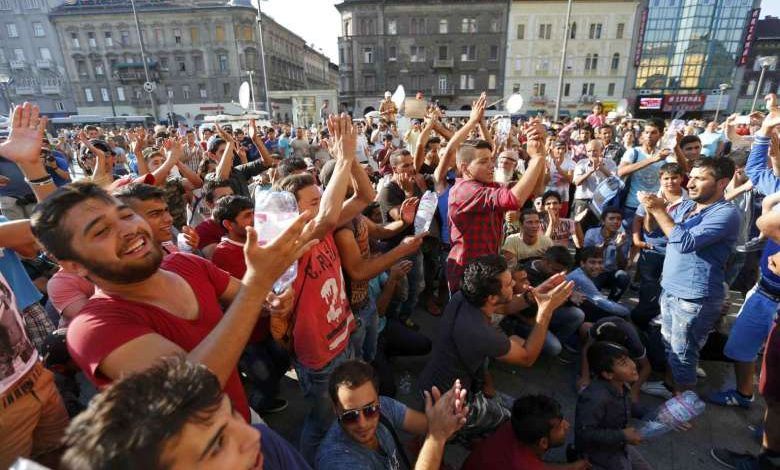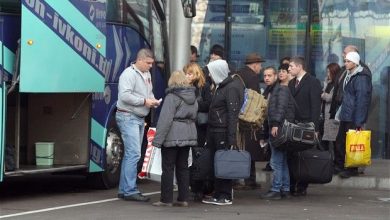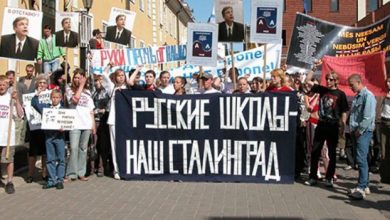Immigration to Europe should grow
Over the years the Bush administration has worked, a certain cliche has developed: Europe treats rights with respect, while the United States, in the name of the fight against terrorism, has not resisted the temptation to use torture. But is the EU really so innocent? Questions about this, as well as about the political struggle within the European Commission, euronews asked the Commissioner for Justice and Internal Affairs, Jacques Barrot.
euronews: Mr. Commissioner, welcome to euronews. So, Barack Obama became the president of the United States – the administration has changed; Democrats have already announced that they are going to shut down Guantanamo, they speak out against torture, even in order to fight terrorism. What will change for the European Union in connection with this new anti-terrorism policy?
Jacques Barrot: First of all, we welcome this correct idea of the new President Obama – you can fight terrorism by respecting a number of certain rules, ethical and legal. This opens up the possibility of a new level of partnership between Europe and the United States. We must create a transatlantic zone of protection against organized crime and terrorism.
euronews: However, secret CIA flights would not have been possible without the knowledge and participation of certain European countries, so from Europe it’s some kind of hypocrisy, don’t you?
Jacques Barrot: This is being investigated. I again turned to the governments of Poland and Romania with requests for CIA aircraft. But with all this, Europe, it seems to me, has always stated clearly: we must comply with the European Convention on Human Rights, which completely prohibits the use of torture.
euronews: Europeans are not too happy to share information about their own citizens, does this bother you?
Jacques Barrot: No, the main problem is that it is not clear whether the new American administration will agree to change methods, abandon unilateral actions in favor of the desire for a trusting partnership between the United States and Europe. In other words, we need rules regarding the protection of collected information. Data protection should not allow indefinite periods of their storage or enable the unintended exchange of such information with people who have no relation to security problems.
euronews: The current European Commission, led by Barroso, has entered its last year. Doesn’t he seem to you a “lame duck” now?
Jacques Barrot: Now the European Commission should be truly at the forefront of all necessary measures to combat the economic and financial crisis; the commission should fully participate in the preparation of the London G20 Summit in April.
euronews: However, there is some hesitation on the part of the European Commission regarding its position on the economic crisis. Do not you think that this is due to the fact that some leaders of the commission are counting on a second mandate?
Jacques Barrot: In order for the Commission to take a more active part in anti-crisis measures, a certain climate is required, a political will to jointly overcome the crisis. Maybe that’s why the impression is that the commission sometimes hesitates, waiting for a consensus. For some individual commissioners there may be certain questions. But it is important to see the dynamics of the European Commission as a whole – and it is positive and meets the requirements of the European Council.
euronews: Would you like the current chairman, Barroso, to stay for a second term?
Jacques Barrot: The advantage of Jose Manuel Barroso is that he can personify the European Commission, defend its role in the institutional structure, which will be changed – with the Lisbon Agreement. We can only wish and hope for ratification of this agreement. It is necessary to adjust the roles of each: the role of the President of the European Council, the role of the six-month presidency, the role of the Commission. I think that Jose Manuel Barroso knows European mechanisms well and this will allow him to consolidate the role of the European Commission – because this is still the most original of the existing institutions.
euronews: There is also the possibility of transferring certain powers of member countries to the European Commission. What, in the long term, asylum rights can be transferred to the community?
Jacques Barrot: This is not about giving the European administration the opportunity to decide whether to grant asylum to a person. The problem is that within Europe there should not be too much disagreement on this subject – as it is now between different member countries: in one you can get refugee status very quickly, and in the other there can be practically no chance. I must say that there is another inequality between EU members: in some of them there are nine asylum requests per thousand inhabitants, although the average figure is about one in a thousand.
euronews: This also has some hypocrisy: sometimes we are told that borders should be closed. Some cannot get to Europe. But for what reason, if in the end all visitors find work here?
Jacques Barrot: Member countries can accept a certain number of immigrants. To do this, we conclude bilateral agreements with countries where these immigrants can come from.
euronews: Do you think the number of legal immigrants should increase?
Jacques Barrot: Yes, given the demographic situation in some of the member countries, where the reproduction rate is in the region of one and a half children per woman. Of course, in this case, immigration should increase. But there are, of course, member countries where the demographic problem is not so strong.
This post is also available in:
 English
English  Русский (Russian)
Русский (Russian)






